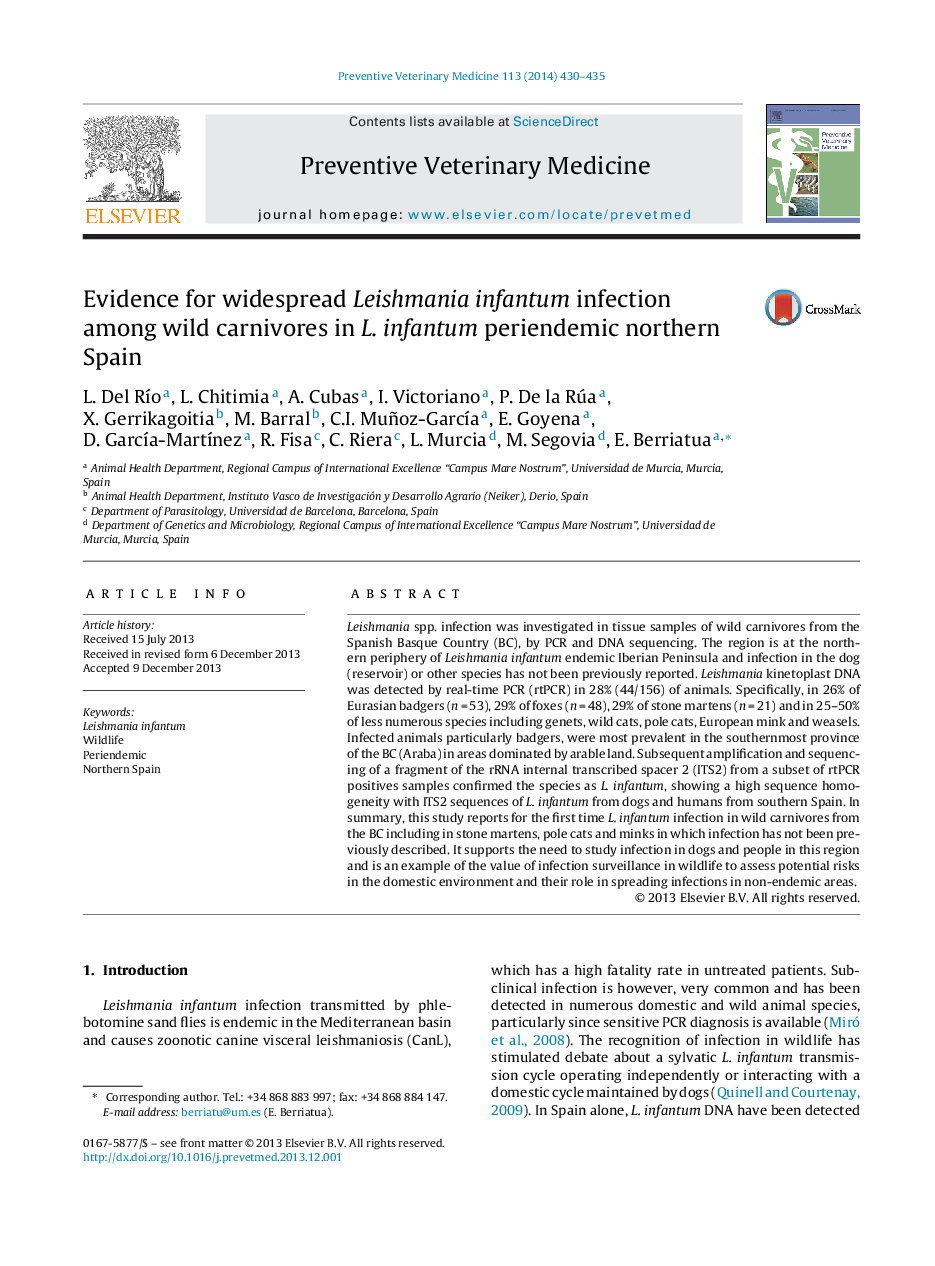| Article ID | Journal | Published Year | Pages | File Type |
|---|---|---|---|---|
| 5793682 | Preventive Veterinary Medicine | 2014 | 6 Pages |
Abstract
Leishmania spp. infection was investigated in tissue samples of wild carnivores from the Spanish Basque Country (BC), by PCR and DNA sequencing. The region is at the northern periphery of Leishmania infantum endemic Iberian Peninsula and infection in the dog (reservoir) or other species has not been previously reported. Leishmania kinetoplast DNA was detected by real-time PCR (rtPCR) in 28% (44/156) of animals. Specifically, in 26% of Eurasian badgers (n = 53), 29% of foxes (n = 48), 29% of stone martens (n = 21) and in 25-50% of less numerous species including genets, wild cats, pole cats, European mink and weasels. Infected animals particularly badgers, were most prevalent in the southernmost province of the BC (Araba) in areas dominated by arable land. Subsequent amplification and sequencing of a fragment of the rRNA internal transcribed spacer 2 (ITS2) from a subset of rtPCR positives samples confirmed the species as L. infantum, showing a high sequence homogeneity with ITS2 sequences of L. infantum from dogs and humans from southern Spain. In summary, this study reports for the first time L. infantum infection in wild carnivores from the BC including in stone martens, pole cats and minks in which infection has not been previously described. It supports the need to study infection in dogs and people in this region and is an example of the value of infection surveillance in wildlife to assess potential risks in the domestic environment and their role in spreading infections in non-endemic areas.
Related Topics
Life Sciences
Agricultural and Biological Sciences
Animal Science and Zoology
Authors
L. Del RÃo, L. Chitimia, A. Cubas, I. Victoriano, P. De la Rúa, X. Gerrikagoitia, M. Barral, C.I. Muñoz-GarcÃa, E. Goyena, D. GarcÃa-MartÃnez, R. Fisa, C. Riera, L. Murcia, M. Segovia, E. Berriatua,
